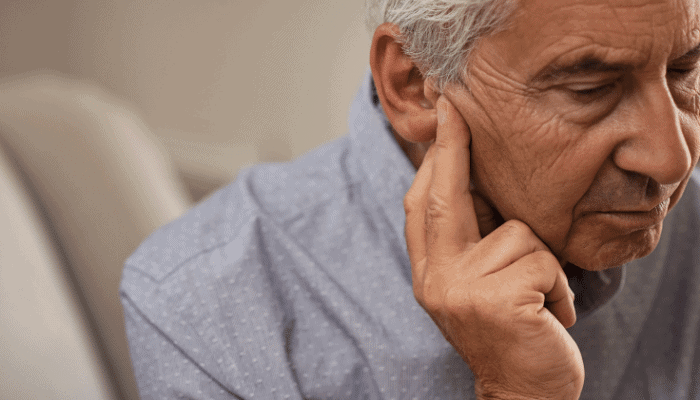By Leanne Powers
Tinnitus is a somewhat mysterious and aggravating condition suffered by approximately one in 10 American adults.
One of those is Greg Van Dell, who led a full life of playing and listening to music, extensive travel, military service in Vietnam and recreational shooting—the latter of which he believes caused his severe tinnitus and hearing loss. After a period of despair that his hearing and peace of mind would soon be gone for good, he finally found the right hearing aid to alleviate his suffering.
If you, a family member, or a friend is suffering from tinnitus, learning more about this affliction and the options for treatment is the first step toward a solution. With that in mind, here are ten interesting and practical facts.
- The origin of this condition’s name is the Latin word tinnire, which literally means to ring.
- There are many causes of tinnitus, including acoustic trauma, medical conditions, reactions to certain medications and temporomandibular joint disorder (TMJ), to name just a few. Noise exposure was the most probable cause of the rapid onset of Greg’s condition. He’d worked with jackhammers and around jets. He’d played and listened to music at the highest volumes. But it was his hearing protection falling out of his ears while shooting at an indoor firing range that resulted in the rapid onset of excruciating tinnitus and hearing loss.
- Tinnitus is not a cause of hearing loss, but those with hearing loss often also experience tinnitus. The incident at the shooting range immediately left Greg with both. After six months of trying to tolerate his condition, the pronounced ringing in his ears became unbearable, driving him to consult an audiologist.
- There are different classifications of tinnitus:
- Objective, often associated with vascular conditions or involuntary muscle twitches
- Subjective, most commonly caused by disorders that also cause hearing loss, such as noise
- Neurological, caused by conditions that affect neurological systems, such as Meniere’s disease
- Somatic, caused or worsened by the body’s own sensory system
- Objective tinnitus is actually audible to a hearing care professional as well as the patient during examination. Subjective is only heard by the patient.
- Not all forms of tinnitus are permanent conditions. An audiologist or other tinnitus specialist can often help manage and ease tinnitus.
- According to the Veteran’s Administration, tinnitus is the most common disability experienced by vets, like Greg. He spent a great deal of time on flight decks in the Navy, exposed to jet engine noise, which may have contributed to the development of tinnitus, along with additional noise exposure.
- Tinnitus therapy signals combat tinnitus noise by creating therapeutic sounds (such as white noise, pink noise, or a combination of noise patterns). These signals can provide significant relief for many tinnitus sufferers.
- Many tinnitus sufferers also experience hyperacusis, perceiving normal outside sounds as excessively loud. Today’s digital hearing aids are also capable of reducing the output to levels that can be tolerated by those suffering from hyperacusis.
- Digital hearing aids are available with tinnitus therapy features. Greg chose hearing aids that provide tinnitus therapy. The therapy signal reduces his perception of the aggravating ringing while adjusting between quieter and noisier listening environments. As a result, Greg experiences tinnitus relief and better hearing.
Tinnitus can be difficult to live with, but there are options for restoring hearing comfort and improving the quality of life for sufferers. Greg credits the tinnitus therapy feature of his hearing aids with making his life more comfortable by reducing his tinnitus to nearly unnoticeable levels, as well as alleviating feelings of desperation brought on by the condition.
Hearing aids with tinnitus therapy control allow wearers like Greg to suppress that irritating ringing by using therapeutic sounds. If you or someone you care about is living with tinnitus, help is available. For more information and treatment options, do what Greg did and consult a qualified hearing care professional.
Dr. Powers received her undergraduate degree from Northern Illinois University, her graduate degree from RUSH University in Chicago, and her Doctorate from A.T. Still University of Health Sciences in Arizona. Leanne has practiced in a variety of hearing healthcare settings over the past 16 years. Most recently, she operated two hearing aid offices in the Chicago land area prior to joining the Siemens Training Team. She currently serves as an Education Specialist for customers as well as Siemens staff on products and services.
Senior Outlook Today is your go-to source for information, inspiration, and connection as you navigate the later years of life. Our team of experts and writers is dedicated to providing relevant and engaging content for seniors, covering topics such as health and wellness, finances, technology and travel.






